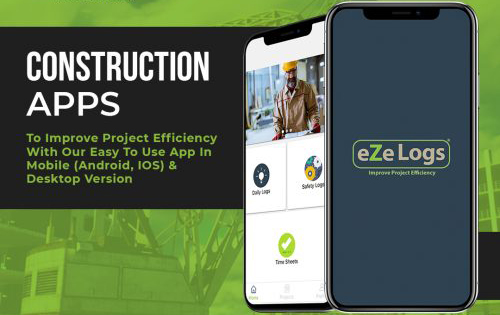Construction planning software is a vital tool that has revolutionized how industry leaders approach construction projects. This software has become more and more essential in the sector due to its need for efficient project management, enhanced safety protocols, and cost savings opportunities.
Technology continues to propel the construction industry forward, offering new tools and techniques for success. One such resource is construction planning software, which offers a comprehensive set of features designed to simplify project management in this digital age.

This article will investigate the advantages of construction planning software, its features, and how it has revolutionized the game for industry leaders. We will also cover successful case studies, the future of construction planning software, and its potential impacts on the sector.
After this you will have a better insight into how this software can help your business stay ahead of the competition and deliver successful construction projects.
Key Takeaways
- Construction planning software is a vital tool that has revolutionized how industry leaders approach construction projects.
- Construction planning software has become more and more essential in the sector due to its need for efficient project management, enhanced safety protocols, and cost savings opportunities.
- Construction planning software enables project managers to optimize workflows, monitor progress in real-time, and automate time-consuming tasks such as scheduling or resource management. This leads to increased productivity, reduced downtime, and faster project completion times.
- Construction planning software offers a central hub for project management, where all stakeholders can collaborate, share information, and monitor progress. This facilitates better communication, prevents delays or misunderstandings, and ensures everyone is on the same page.
- Construction planning software can help identify potential issues and conflicts early on, decreasing the likelihood of costly mistakes or delays. By streamlining processes and optimizing resource allocation, construction planning software also helps reduce project costs and boost profitability.
- Construction planning software can enhance safety on the job by providing tools to identify and mitigate risks, such as real-time monitoring of hazardous conditions and tracking safety compliance. This leads to a safer work environment for employees and reduces the chance of accidents or injuries.
- Key features of construction planning software include advanced 3D modeling and visualization capabilities, resource optimization, task scheduling and tracking, and real-time reporting and analytics.
- Successful case studies of construction planning software implementations include Turner Construction, Skanska USA, and Mortenson Construction, all of which saw increased productivity, improved communication and collaboration, cost savings, and enhanced safety on job sites.
- The future of construction planning software is marked by emerging trends and advances in technology, including artificial intelligence and machine learning, augmented reality and virtual reality, the Internet of Things, and the use of drones.
Use the software to manage the whole Construction Planning process
Benefits of Construction Planning Software
Construction planning software offers numerous advantages that can have a major influence on the success of construction projects. Here are some key features:
It enables project managers to optimize workflows, monitor progress in real-time, and automate time-consuming tasks such as scheduling or resource management. This leads to increased productivity, reduced downtime, and faster project completion times.


It offers a central hub for project management, where all stakeholders can collaborate, share information, and monitor progress. This facilitates better communication, prevents delays or misunderstandings, and ensures everyone is on the same page.
It help identify potential issues and conflicts early on, decreasing the likelihood of costly mistakes or delays. By streamlining processes and optimizing resource allocation, construction planning software also helps reduce project costs and boost profitability.
It can enhance safety on the job by providing tools to identify and mitigate risks, such as real-time monitoring of hazardous conditions and tracking safety compliance. This leads to a safer work environment for employees and reduces the chance of accidents or injuries.
It can assist construction companies in increasing productivity, efficiency, and safety while cutting costs and errors. These advantages are essential for remaining competitive in the industry and delivering successful projects.
Key Features of Construction Planning Software
Construction planning software offers a suite of essential features that can enhance project planning, management, and execution. Here are some of the essential ones to consider:
Construction planning software often includes advanced 3D modeling and visualization capabilities, enabling project managers and stakeholders to view the project in greater detail before construction begins. This helps identify potential issues early on, make informed decisions, and optimize project design and planning processes.
One of the key feature is that it can optimize the use of resources such as labor, equipment, and materials by scheduling and tracking resources, managing inventory, and identifying potential bottlenecks. This reduces waste generation, boosts efficiency levels, and shortens project timelines.
It includes tools for scheduling and managing tasks, assigning responsibilities, and tracking progress. This helps guarantee everyone is working towards the same objectives, deadlines are met, and the project stays on track.
These softwares offers real-time reporting and analytics on project progress, resource allocation, and other key metrics. This helps identify potential issues early on, monitor project costs, and measure performance against established benchmarks.
Construction planning software offers a suite of essential features to help construction companies stay organized, efficient, and on track with their projects. By taking advantage of these capabilities, companies can improve project outcomes, minimize risks and boost profitability.
Case Studies of Successful Implementations
The following case studies showcase successful implementations of construction planning software in the industry:
- Turner Construction: Turner Construction is one of the largest construction companies in the United States, and they have been using construction planning software to improve their project management processes. By implementing a cloud-based software platform, they were able to streamline communication, automate tasks, and reduce errors. As a result, Turner Construction was able to complete projects faster and more efficiently while improving collaboration and reducing costs.
- Skanska USA: Skanska USA is a leading construction company that has implemented construction planning software across its projects. By leveraging the software’s 3D modeling and visualization capabilities, Skanska USA was able to improve communication and collaboration among stakeholders, reduce risks, and improve project outcomes. Skanska USA also reported significant cost savings and reduced errors due to the software’s ability to identify potential problems early on.
- Mortenson Construction: Mortenson Construction is a company that specializes in renewable energy and sustainability projects. They implemented construction planning software to manage the complexity of their projects, optimize resource allocation, and improve safety on job sites. The software’s reporting and analytics capabilities allowed Mortenson Construction to measure and analyze project performance, identify areas for improvement, and make data-driven decisions.
These case studies demonstrate the real-world applications and benefits of construction planning software. Industry leaders have seen positive results and feedback from users, including increased productivity, improved communication and collaboration, cost savings and enhanced safety on job sites.
Implementing construction planning software, companies can stay ahead of the competition, reduce risks, and deliver successful projects.
Future of Construction Planning Software
The future of construction planning software is marked by emerging trends and advances in technology that have the potential to revolutionize this industry. Here are some key areas to watch:
Artificial Intelligence (AI) and Machine Learning: AI and machine learning are set to revolutionize construction planning software. These technologies can automate processes, analyze data, and offer predictive insights, allowing construction companies to make better-informed decisions and maximize project outcomes.
Augmented Reality (AR) and Virtual Reality (VR): AR and VR technologies are increasingly being integrated into construction planning software, giving project stakeholders immersive, interactive experiences. This can improve communication, boost collaboration, and identify potential issues before construction even starts.
Internet of Things (IoT): Devices such as sensors, wearables, and drones are being utilized to collect data on construction sites which can then be analyzed and optimized for project planning and execution. IoT also helps improve safety on job sites by providing real-time insights into environmental conditions and worker activity.
The potential impact of technology on the construction industry is enormous. Construction planning software will become more sophisticated, allowing for more precise and efficient project planning and execution. This has the potential to reduce costs, enhance safety, and boost profitability for construction companies.
However, there are also challenges to overcome. One major concern is making construction planning software accessible to all stakeholders regardless of technical proficiency. Furthermore, data must remain secure and protected from cyber threats.
The future of construction planning software looks promising, with emerging trends and technological advancements that have the potential to revolutionize the industry. With the right strategy and investment, construction companies can seize these chances to stay ahead of competitors and deliver successful projects.
The Bottom Line
Construction planning software offers numerous advantages to construction companies, such as increased productivity and efficiency, improved project management and communication, cost savings, and enhanced safety on job sites. Key features of such software include 3D modeling/visualization, resource management, scheduling/task management, and reporting/analytics – just to name a few!
Industry giants such as Turner Construction, Skanska USA, and Mortenson Construction have already demonstrated the practical application of construction planning software. Looking ahead, emerging trends and breakthroughs in technology such as AI/machine learning, AR/VR, and IoT hold great promise for further revolutionizing this sector.
Investment in construction planning software is becoming increasingly essential for construction companies looking to stay ahead of the competition and deliver successful projects. Utilizing appropriate technology and tools, contractors can improve project outcomes, minimize risks, and boost profitability.
We suggest construction companies invest in construction planning software to stay organized, efficient, and on track with their projects. With the correct strategy, construction planning software can enable businesses to take their operations to the next level and achieve long-term success.


